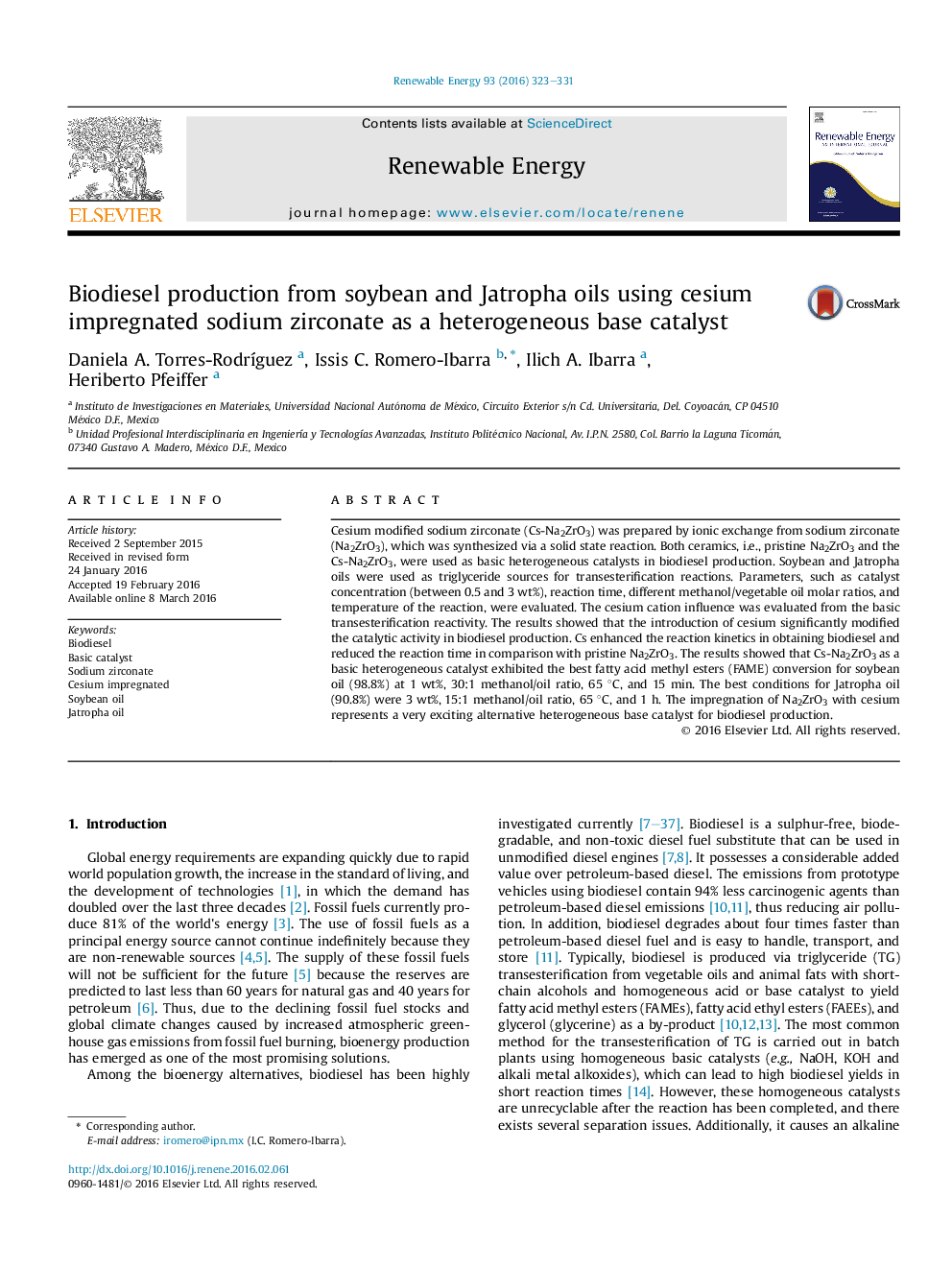| Article ID | Journal | Published Year | Pages | File Type |
|---|---|---|---|---|
| 299771 | Renewable Energy | 2016 | 9 Pages |
•The biodiesel yield can be enhanced under impregnated cesium into sodium zirconate.•Maximum yield (98.8%) with 1wt% of catalyst was achieved in 15 min from soybean oil.•Cesium impregnated ceramic catalyzes the Jatropha oil (90.8%) at 65 °C in 1 h.•The catalyst is able to use in successive cycles with stable conversions.
Cesium modified sodium zirconate (Cs-Na2ZrO3) was prepared by ionic exchange from sodium zirconate (Na2ZrO3), which was synthesized via a solid state reaction. Both ceramics, i.e., pristine Na2ZrO3 and the Cs-Na2ZrO3, were used as basic heterogeneous catalysts in biodiesel production. Soybean and Jatropha oils were used as triglyceride sources for transesterification reactions. Parameters, such as catalyst concentration (between 0.5 and 3 wt%), reaction time, different methanol/vegetable oil molar ratios, and temperature of the reaction, were evaluated. The cesium cation influence was evaluated from the basic transesterification reactivity. The results showed that the introduction of cesium significantly modified the catalytic activity in biodiesel production. Cs enhanced the reaction kinetics in obtaining biodiesel and reduced the reaction time in comparison with pristine Na2ZrO3. The results showed that Cs-Na2ZrO3 as a basic heterogeneous catalyst exhibited the best fatty acid methyl esters (FAME) conversion for soybean oil (98.8%) at 1 wt%, 30:1 methanol/oil ratio, 65 °C, and 15 min. The best conditions for Jatropha oil (90.8%) were 3 wt%, 15:1 methanol/oil ratio, 65 °C, and 1 h. The impregnation of Na2ZrO3 with cesium represents a very exciting alternative heterogeneous base catalyst for biodiesel production.
Graphical abstractFigure optionsDownload full-size imageDownload as PowerPoint slide
